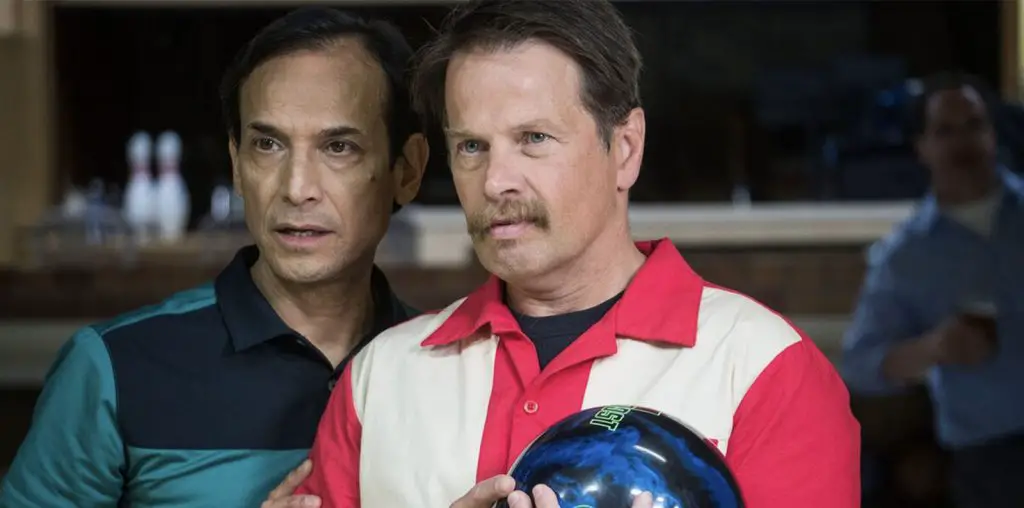
The new film from the team behind “Being John Malkovich” should have been called Being Charlie Kaufman. Based on the originality and loopy daring of that picture’s script, its author earned a reputation as the Salvador Dali of Hollywood. There’s less to his latest than meets the eye, however. Where the former conjured a portal into the mind of Malkovich, the latter provides one into the self-conscious, overwrought psyche of the screenwriter himself. The problem: Alice doesn’t step through the looking glass this time. Rather, Kaufman more or less just stands in front of it.
“Adaptation” has been universally hailed as a work of staggering genius. I defy you to find a review which doesn’t contain the terms “hall of mirrors,” “byzantine,” or “mobius strip.” Critics have engaged in a contest of hyperbolic one-upmanship crediting Kaufman’s script with a worlds-within-worlds structure of boggling multidimensionality and labyrinthine brilliance. The fact though isn’t so much that “Adaptation” is mindblowing as that most movies are comparatively mindless. Watch “The Wedding Planner” all year long and by Christmas “Maid In Manhattan” can look like great art. Lovers of ambitious cinema are so starved they’ve grown a bit delirious.
The whole thing’s not all that complicated. In real life, Charlie Kaufman was commissioned to write a screenplay based on Susan Orlean’s bestseller The Orchid Thief. In real life, he found himself struggling to distill the book into filmable form. In real life, he eventually gave up and decided to write a script about how much trouble he was having adapting the book instead. In the real world, if your employer gives you an assignment and you don’t complete it, that’s called failure. In the motion picture industry, it’s called bold innovation. Pull a stunt like that and you’d get fired. Kaufman does the same thing and he gets award nominations.
Nicolas Cage stands in for the highly neurotic scribe. The film follows him from the point when he’s offered the job through numerous aborted attempts to get it off the ground. Increasingly overcome by self-loathing, he flagellates himself for being bald, fat, socially inept and incompetent. The book, we’re given to understand, is more than the story of a colorful character (Chris Cooper) obsessed with harvesting rare species of the flower and the relationship which develops between Orlean (Meryl Streep) and her subject. Evidently it contains sizable patches of poetic musing and rumination which, while of high literary quality, resist translation to film.
Director Spike Jonze provides the audience with glimpses of the book’s narrative as Cage reads through it again and again in search of a solution. The scenes between Cooper and Streep are easily the movie’s most engaging and the observations attributed to Orlean are more provocative than any generated by Kaufman.
In real life, the screenwriter realized that he still had a big problem. Even if he bailed on adapting the book and resorted to writing a script about the problems he was having adapting it, he still didn’t have much of a story. Who wants to watch a guy battle writer’s block for two hours? What would he do for a third act?
Kaufman’s solution? He invented a twin brother named Donald who’s identical to him physically but 100% his opposite intellectually. Easygoing, unpretentious and entirely void of originality, Donald decides he wants to be a screenwriter too and the lion’s share of the film’s comedy arises from Charlie’s derision of his brother’s ideas. Donald turns out to be an easy target. Kaufman molds him into a symbol for everything derivative and dumb about mainstream filmmaking. When Donald reveals his intention to write a script about a serial killer, Charlie is condescending. When he decides to give the character multiple personalities, his brother all but laughs in his face. It goes without saying, Charlie makes lots of cracks about writing that relies on gunfights, drugs and car chases. And that Donold’s script is a hit with Charlie’s contacts.
In real life, Kaufman still lacked an ending and copped out by having Charlie look to Donald for advice. The next thing you know, the story sprouts a final act in which The Orchid Thief resolves as a ho-hum parody of dumb, derivative mainstream films replete with gunfights, drugs and car chases.
But, really, did we need Kaufman to point out how boneheaded Hollywood can be? And does he do all that much better when, ultimately, he looks to mainstream conventions for the means to put the finishing touches on his tale?
To be sure, Kaufman’s smarter than the average bear and Adaptation is smarter than average fare. Cage does wonderfully calibrated work. Cooper’s performance is the highpoint of his career. The film’s director, cinematographer and composer all contribute savvy touches. At the end of the day, though, this is Charlie Kaufman’s movie and I’m not sure he proves quite the visionary puppetmaster many in the media are making him out to be. As explanations for unfinished assignments go, it beats the hell out of “the dog ate my homework.” By any other measure, “Adaptation” leaves more than a little to be desired.

